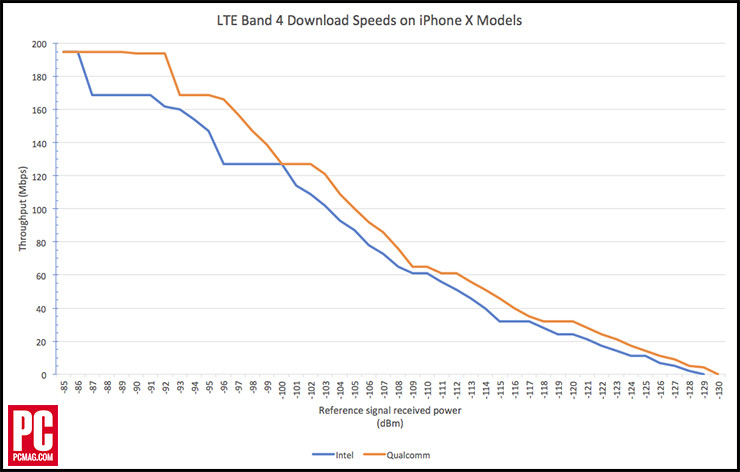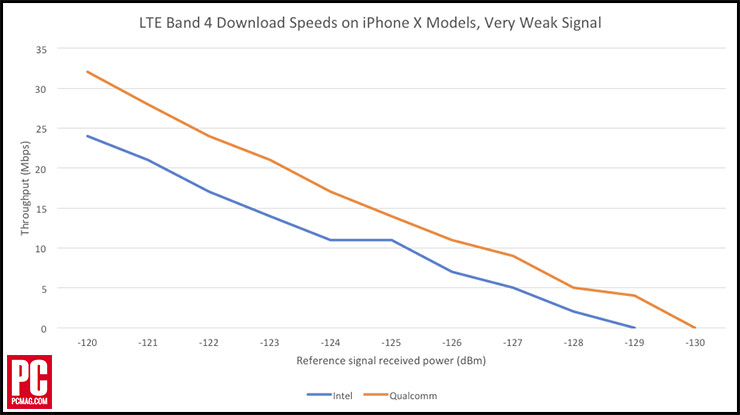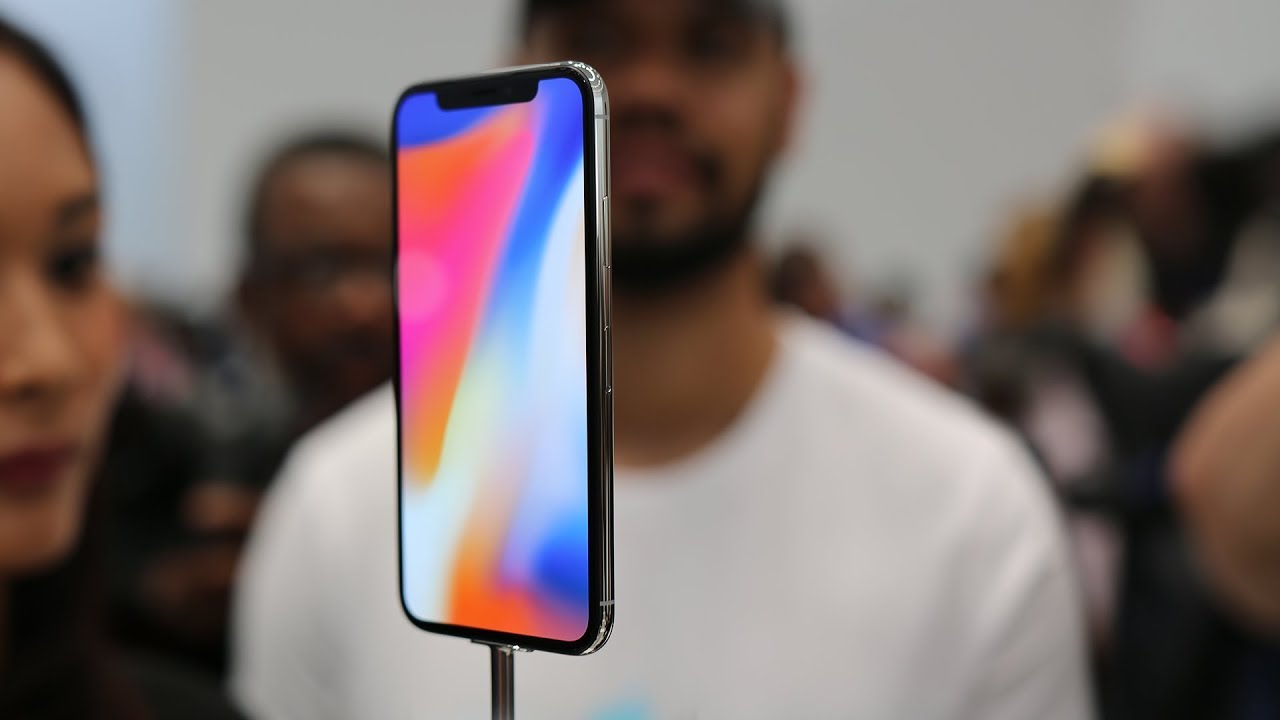Apple last year added Intel as a component supplier for its iPhone, lessening the company's dependence on Qualcomm for modem chips. The move made sound business sense - the ongoing legal disputes between Apple and Qualcomm are well-documented - but according to recent testing, the same can't be said in terms of sheer performance.
Test results from Cellular Insights (via PCMag) reveal that Qualcomm-powered iPhone X models offer consistently better LTE speeds compared to their Intel counterparts when used on the most common LTE band in the US (LTE Band 4).
Cellular Insights reportedly used lab equipment to test the Qualcomm-powered A1865, an iPhone X sold by Sprint, Verizon and US Cellular, and the Intel-powered A1901 which is offered by AT&T and T-Mobile. Test results on LTE Band 4 at various signal strengths are highlighted in the chart below.

As you can see, things start out even but Qualcomm quickly pulls ahead and maintains its lead as signal strength decreases.
According to the publication, most consumers will feel the squeeze when in areas with weak signal where every dBm of signal matters. This is highlighted in the chart below.

While still not on par with Qualcomm, Intel has managed to close the gap a bit as the performance difference between the two chipmakers' offerings isn't as large as it was in last year's iPhone 7 Plus. In a few years, however, it could all be a moot point as Apple will likely abandon Qualcomm entirely in the near future and could do the same with Intel once it is in a position to develop its own modems.
